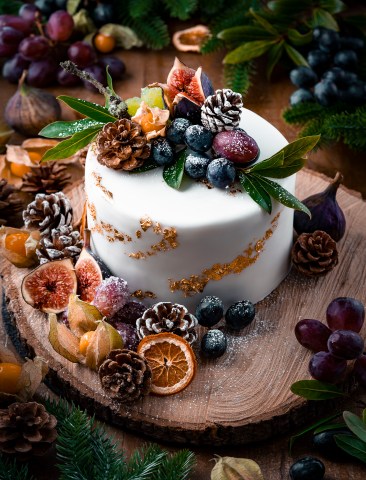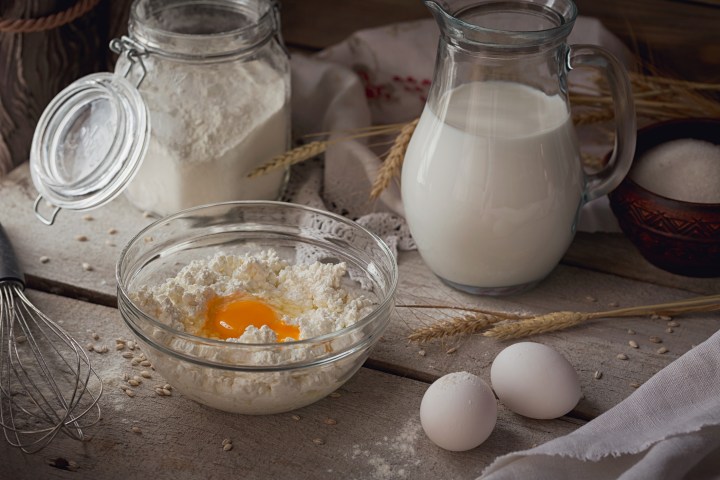Your top skincare questions answered

Skincare specialist Dr Jessica Wu has spent years helping the world’s A-list look and feel fantastic on the red carpet and is one of Hollywood’s most sought-after beauty experts. We asked Dr Wu for some top skincare tips.
Q: What is the best food to eat to give you a radiant glow for summer?
A: Tomatoes are my favourite skin-friendly food for summer, since they help protect your skin from sunburn and sun damage. Tomatoes are high in lycopene, the antioxidant that gives tomatoes, red peppers and strawberries their red colour. Cooked or processed tomatoes (such as tomato paste, sun-dried tomatoes or tomato juice) have the best effect on your skin, so ask for extra tomato suace on your pasta or pizza, add sun-dried tomatoes to your sandwiches or salads and order a Bloody Mary instead of a sugary cocktail.
Q: What are your top tips for stopping skin drying out and getting thinner and more brittle with age?
A: Skin gets thinner over time, as your body makes less collagen and more of it is broken down. To fight this, make sure you eat protein every day to help supply your body with the amino acids it needs to make strong collagen. In addition, I advise my patients to use a topical retinoid cream. Skin also gets more dry and delicate as we age, so it’s important to add omega-3 fatty acids to your diet. These healthy fats, found in fish (such as salmon, sardines and mackerel) as well as flaxseeds, walnuts, almonds and olive oil, can help restore your skin’s hydration and improve elasticity.
Q: Do you have any tips for looking after a more pale complexion during summer, whilst still catching the sun?
A: As I mentioned above, you should eat more tomatoes as they help protect your skin from sunburn and sun damage. You should also drink plenty of green tea. This has been shown to help protect against sunburn and other signs of sun damage, such as sun spots. Last but by no means least, you should choose a sunscreen with an SPF between 30–50 (often labelled ‘High Protection’), as well as a high level of UVA protection (between 4–5 stars).
Q: How can I balance getting my skin really clean without using products that are too astringent? At present I’m using quite a gentle cleanser but I’m sure it’s not doing as good a job as the stronger one I used previously. Is the case that for anyone working in a dirty, city environment, clean is more important that gentle?
A: If you skin is dry and/or sensitive, it’s better to be gentle on your skin. Use a gentle cleanser that removes most of the dirt, oil and make-up from your skin. Then, if needed, follow that with an alcohol-free toner to remove any remnants. If your skin is oily or acne-prone, you can probably tolerate a foaming or gel cleanser that leaves your skin squeaky clean without overly drying it out. If it does feel dry or tight after washing, follow with an oil-free moisturizer to the dry areas only (typically cheeks and around the eyes).
Q: Thanks to my dad I’ve inherited puffy bags under my eyes. What’s a good natural way to minimise the appearance of them?
A: Puffy bags can be minimized with cool soy milk compresses. Dip a cotton ball into cold soy milk and hold it over your closed eyes for a few minutes. The cold temperature helps shrink swollen tissues and the soy milk contains natural anti-inflammatories. If your under-eye bags are worse in the morning and get better later in the day, or if they’re better on some days and worse on others, it may be due to fluid retention. To combat this, avoid salt or salty foods after lunch and sleep on an extra pillow to encourage the fluids to drain properly. If your puffy bags are associated with nasal congestion or allergy symptoms, try taking a non-prescription antihistamine to reduce swelling. If your puffy bags are the same at all times, it may be due to a hereditary collection of fat, which can only be removed with a surgical procedure.
Q: What is the best way to control oily skin?
A: Avoid sweets and baked goods. Sugar and simple carbohydrates (found in bread, pasta, potatoes and white rice) can stimulate your skin to produce more oil. They also contribute to inflammation, which can worsen acne breakouts. When cleaning your skin, use a gel or foaming cleanser, which is more effective than a milky cleanser at dissolving oil. You should also use a mattifying primer to soak up oil and if you wear makeup, look for oil-free of oil-control products. You should avoid powdering your nose, which can end up caking and settling into your pores.
Q: What is the best, easiest and cheapest way to close up really old open pores across the nose and chin? My mother suggests splashing my face with icy cold water but it hasn’t really worked.
A: Contrary to popular opinion, you can’t ‘open’ pores with hot steam or ‘close’ them with cold water. Pores are the openings to hair follicles and oil glands, and they are determined largely by heredity, as well as the amount of sun you’ve been exposed to and the amount of collagen in your skin. If the large pores have been there for years, your best bet is to prevent them from getting any bigger, by using a retinoid product every night to prevent the build-up of dead skin cells that can stretch them out even more. It’s also helpful to scrub with a salicylic acid-containing facial scrub once or twice a week to exfoliate dead skin. You can also try a pore-reducing primer that helps camouflage the pores and soak up oil. If you have blackheads in addition to pores, regular visits to an experienced facialist can help keep your skin clean and prevent the pores from becoming permanently enlarged. Lastly, try to avoid sugar in your diet, since sugar and carbs can lead to increased clogged pores and stimulate the oil glands to produce more oil.
Q: I suffer from eczema, particularly in the winter. I have tried various lotions and potions but nothing is 100 per cent satisfactory. Is there anything you would recommend?
A: Eczema (also called atopic dematitis) is a condition that causes itchy rashes. Recent research suggests that those with eczema have a problem with their skin’s natural barrier — in other words the outer protective layer of skin. While lotions may help many people, in others it’s not enough to just moisturize the skin. I recommend doing the following:
Eat more fish. Studies have shown that DHA (docosahexaenoic acid), a type of omega-3 fatty acid that’s found in fish is particularly helpful for those with eczema. Fresh fish has twice the amount of DHA as canned fish, so try to have fresh fish if possible. If you’re a vegetarian, try taking an algae oil supplement, which is also high in DHA.
*Use a moisturising body wash instead of a bar of soap in your bath or shower. Bar soaps are fine for hands and feet, but can strip your skin’s natural protective oils.
*Invest in a humidifier to replace moisture in your skin
*Instead of lotions, choose a rich body butter or thick cream that help replenish your skin’s protective oils. I like Body Shop Body Butters — they smell delicious!
Q: I’ve got combination skin so an careful about using non-oily products, but I’m also aware that I need to start nourishing my skin more as I enter my mid-twenties. What would you advise?
A: You’re on the right track about using non-oily products, but it’s not too soon to start thing about preserving your youthful skin. Look for an oil-free moisturiser containing antioxidants which help protect your skin’s collagen to keep it firm. Heavy creams may clog your pores, so a serum may feel lighter and less greasy on your skin. Try Boots No 7 Protect and Perfect Beauty Serum. Freckles can start popping up in your twenties and thirties, so be sure to use a sunscreen with SPF 30–50 and UVA protection. For your combination skin, look for a liquid sunscreen formula such as Clarins UV Plus Day Screen or La Roche-Posay Anthelios 60 Ultra-Light Sunscreen Fluid.







